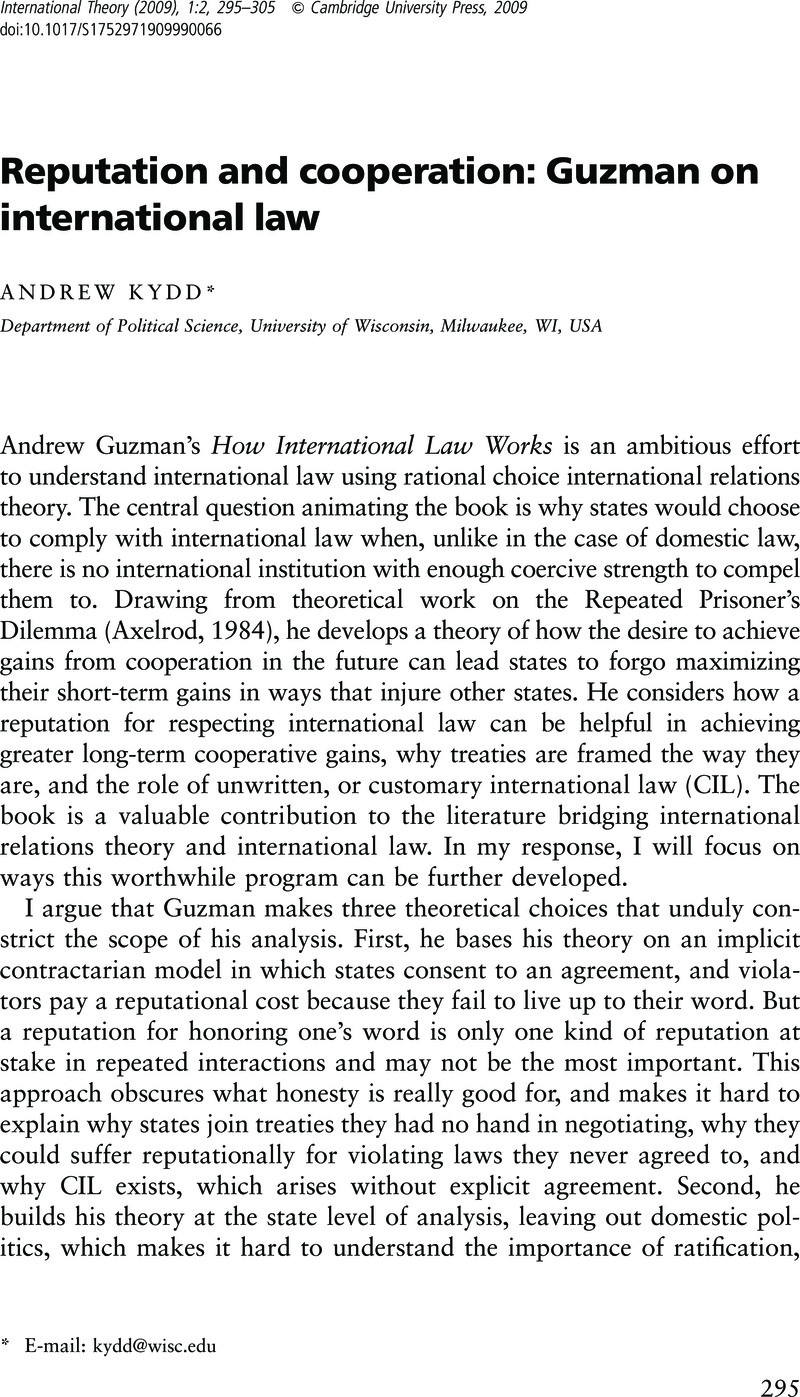Crossref Citations
This article has been cited by the following publications. This list is generated based on data provided by Crossref.
Guzman, Andrew T.
2009.
How international law works: a response to commentators.
International Theory,
Vol. 1,
Issue. 2,
p.
335.
Thompson, Alexander
2009.
The rational enforcement of international law: solving the sanctioners’ dilemma.
International Theory,
Vol. 1,
Issue. 2,
p.
307.
Sylvest, Casper
2010.
Realism and international law: the challenge of John H. Herz.
International Theory,
Vol. 2,
Issue. 3,
p.
410.
Abbott, Kenneth W.
and
Snidal, Duncan
2012.
Interdisciplinary Perspectives on International Law and International Relations.
p.
33.
Milewicz, Karolina M.
and
Elsig, Manfred
2014.
The Hidden World of Multilateralism: Treaty Commitments of Newly Democratized States in Europe.
International Studies Quarterly,
Vol. 58,
Issue. 2,
p.
322.
Hallwood, Paul
2016.
International Public Law and the Failure to Efficiently Manage Ocean Living Resources.
Marine Resource Economics,
Vol. 31,
Issue. 2,
p.
131.
Digiuseppe, Matthew
and
Poast, Paul
2018.
Arms versus Democratic Allies.
British Journal of Political Science,
Vol. 48,
Issue. 4,
p.
981.
Janusch, Holger
2018.
The Interaction Effects of Bargaining Power: The Interplay Between Veto Power, Asymmetric Interdependence, Reputation, and Audience Costs.
Negotiation Journal,
Vol. 34,
Issue. 3,
p.
219.



